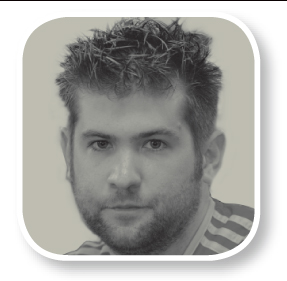






On Being (a) Professional: Part Iby Gavin Griffin | Published: Sep 01, 2013 |
|
|

Gavin Griffin
Many people quit their jobs or school to play poker each year because they see poker players on TV or at their local casino living it up and rolling in cash. The truth is it’s a difficult lifestyle. I’ve been doing it for 10 years now, and in that time I’ve evolved both as a person and as a player. The changes I’ve made in my life have been a result of experience, learning from others, and good old trial and error. I’d like to share some of the things I’ve learned over my time as a professional poker player so that, if you decide to make the leap, you’ll be better prepared than I was.
Time Management
One thing that I know aspiring professional poker players love about the poker lifestyle is the ability to set your own hours. Moving from being on someone else’s clock at your job or at school, to the freedom of choosing when you go in to work, or if you do at all, is seductive to many. The truth is that it’s a blessing and a curse. For much of my poker career, I was too casual about my work hours. I would play when I felt like it, which amounted to not that much. Sure, it was great to have free time and do what I felt like doing most of the time, but I was really doing a disservice to myself. By being so casual and carefree with the hours I put in, I really cut down on my maximum earning potential.
Ten years ago, I would wake up each day and decide if I felt like playing poker. If I did, I would and if I didn’t, I wouldn’t. Now, I schedule my work a week or two in advance. Each Sunday, my wife and I look at her schedule and the family schedule and we decide which days I’m going to work and what hours I’m going to work each of those days. Once it’s in the schedule, it’s set and I know roughly how many hours I’ll be playing that week and can therefore know about how many I’ll be playing that month. This allows me to have a more accurate idea of how much money I’ll be making that month, so we can plan that accordingly as well. Obviously, I can never know exactly how much money I’ll make in a given day/week/month and poker players that mainly play tournaments have a much easier time scheduling than cash game players. However, I can estimate, based on my expected hourly, how much money I’ll be depositing to our bank accounts. This is honestly something that I never even considered before a few years ago. Money would come in or it wouldn’t, I didn’t much care.
The advantages I gain from this scheduling are great. I get a general idea of when I’ll be going to work. This can obviously be changed if need be, but not without rescheduling. As stated above, I get a general idea of how much money I’ll be making each month. This is obviously an advantage because it makes planning things out financially much simpler. Finally, I get to spend my time with my family with a more relaxed mindset, because I know what days I’m going to work and what days I’m not. I don’t spend my family time thinking about whether I should go in to the casino or not. I get to be present with my family instead of just with them.
I always thought that planning a schedule ahead of time would limit my freedom. I resisted my wife’s planning because I thought it would limit me. When we go on vacation, she likes to plan every day and I like to take it a little bit easier. We’ve found a compromise there. We schedule sight-seeing and adventures, but we also schedule lazy days so we can lounge by the beach or do whatever we feel like, including more sight-seeing or activities. While it’s true that not everything can be planned for, and not everything should be planned out, it’s actually quite freeing to know when you will be working and when you won’t. In a job that attracts people that maybe aren’t so schedule driven, it’s a developed skill that might make life easier. ♠
Gavin Griffin was the first poker player to capture World Series of Poker, European Poker Tour and World Poker Tour titles and has amassed nearly $5 million in lifetime tournament winnings. Griffin is sponsored by HeroPoker.com. You can follow him on Twitter @NHGG.
Features
The Inside Straight
Strategies & Analysis
Commentaries & Personalities